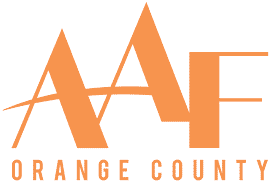
Updated: Jan 31, 2023
It's so easy to waste time and money on a blunt approach to SEO. The keywords you worked so hard to find even just a few months ago might now be missing the mark because you're not using linguistics. Gone are the days you could find the right keywords and then wait for them to pay off. Things have changed. Google is smarter at understanding how people search, but so is your competition.
Even the best keyword isn't working hard enough for you if it's not in the right context. For example, how many useless results will you get from the keyword "glasses" if you sell eyewear instead of restaurant supplies? How much you paid to find your keywords or how often you use them won't reduce the poor performance in organic search results or search engine rankings.
Are these the right words but in the wrong order? Maybe. Trying to understand what someone is saying when they're standing in front of you can be challenging enough, let alone when they're writing it in a search bar/box/field.
As beautiful as it is, English can be confounding. In fact, it's widely recognized as one of the most complicated languages to learn – and that's right here in the United States. Different cultures, regions, and age groups all use English, or shall we say American, in their own particular way.
Not only are the words important, but also the context of those words. Of course, we all expect others to understand what we mean -- often with embarrassing and humorous consequences.
A "fanny" pack in the UK is NOT at all the same as a "fanny pack" in the USA.
"Pant" is not necessarily the singular form of "pants"
"Bats" in your garage might or might not require pest control
That's "cold," is not always a comment about the temperature
Asking someone to "crack" the window doesn't usually result in a window "crack"
The phrase husband "misses" wife, doesn't always mean he was emotionally "close" to his spouse

It's embarrassing to admit, but I was in the habit of using the accuracy and precision of the words interchangeably until someone showed me these diagrams. Before this, I assumed they meant the same thing. I didn't realize that many people consider them to be quite different, and rightly so. Except, I'm not the only one who should have known better. And that's the point.
When it comes to search, there is no grammar class right or wrong. There is no final arbiter or dictionary definition to rely on. It's all about depending on the keywords the way your specific audience understands them and uses them in search queries.
Keywords you might consider as "natural" language with an obvious meaning are often not at all natural nor obvious to others. And this can contribute to a frustrating user experience. Long-tail keywords can help you define your audience and goals more effectively.
Search Engine Optimization, or SEO can be complicated. Thankfully, the field of linguistics deals with the advanced study of language. It helps us uncover the many factors involved in how a specific word is understood and used by others. Unfortunately, these factors can become pitfalls if you're not aware of them or how to use them.
The wrong morphology, an awkward syntax, poor semantics, or an unfamiliar context can turn into ferocious lions and tigers and bears online. With linguistics, we can navigate the most effective path around the pitfalls to find the people we want to find us.
Simply put, Search Linguistics combines what we know about language with how search engines work. In everyday conversation, the occasional misinterpretation or misuse of a word or phrase can be considered a minor faux pas or even a charming quirk. Not so when it comes to all the time and money spent on keyword research.
Search Linguistics gives us the tools to understand better the many aspects of how even simple words are used. You can then apply this knowledge to your entire SEO strategy, whether it's for your on-page SEO or off-page SEO. Working on SEO without linguistics is like taking a shot in the dark at your target and that should never be considered when looking at the cost of SEO optimization. With Search Linguistics, SEO is like using laser-assisted target sighting to score a bullseye every time.
The easy way
The easy way is to ask whoever is managing your SEO to explain how linguistics is being used to improve the effectiveness and efficiency of your plan. If they can't show you examples or they can't explain it to you in simple terms you can understand, it's time to look elsewhere for your SEO.
The hard way -- NERD ALERT
To be clear, in this context, NERD is one of the highest compliments you can pay to the elite few who understand the following terms. The rest of you should really go back to the easy way or click here.
Phonology (spoken word) and graphology (handwriting). This covers the unique way we make sounds when we speak and how we shape and connect the letters of our handwriting. This has the least amount of effect on SEO strategy, and is primarily for voice search.
Morphology is the study of morphemes. These are the shortest units in a language, and they can transform the grammatical designation of a word. For example, the word "ball" can be changed from a noun to a verb.
Syntax is the branch of linguistics that deals with the order of words or phrases that create clear, well-formed sentences.
Semantics is the study of meanings. Often the meaning of words changes over time. These are explored by way of historical linguistics.
Historical linguistics is also used to study the pre-history of languages and how they are related. If you'd like a quick and humorous demonstration, ask a teenager what cool means to them and compare it to what it meant to you at your age.
Computational linguistics describes text-to-speech TTS synthesizers, speech recognition, instant machine translation, interactive voice response systems, and it is used to help Chat Bots pass the Turing test.
These are just some aspects of what Search Linguistics involves, and its effects on search should be apparent. It has tremendous potential to impact almost every aspect of search. A perfunctory application of Search Linguistics to simply check the box might fool you into thinking your efforts are up to date, but it won't even begin to mine the benefits available. Instead, seek out a fundamental understanding of how linguistics can help you truly optimize search.





